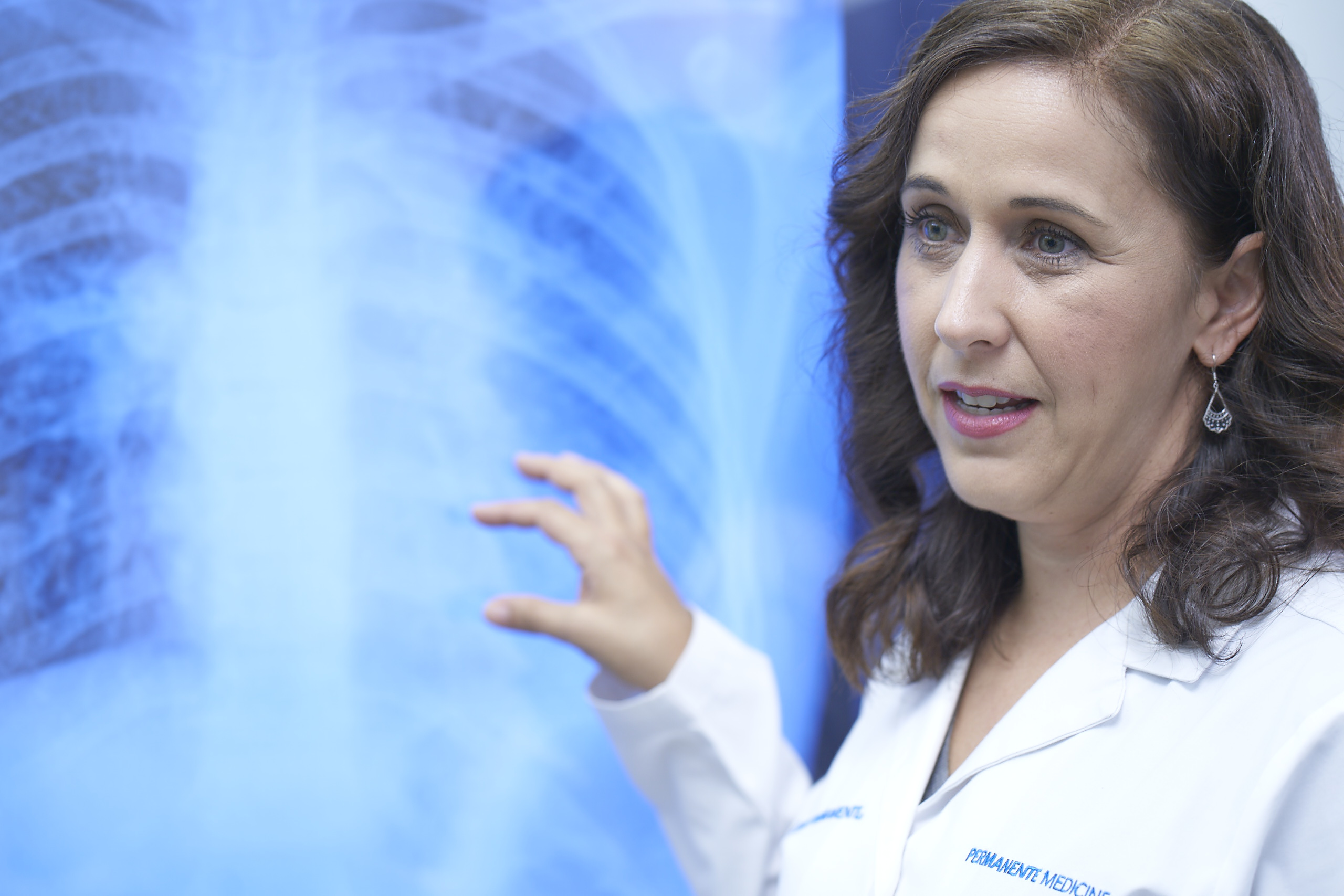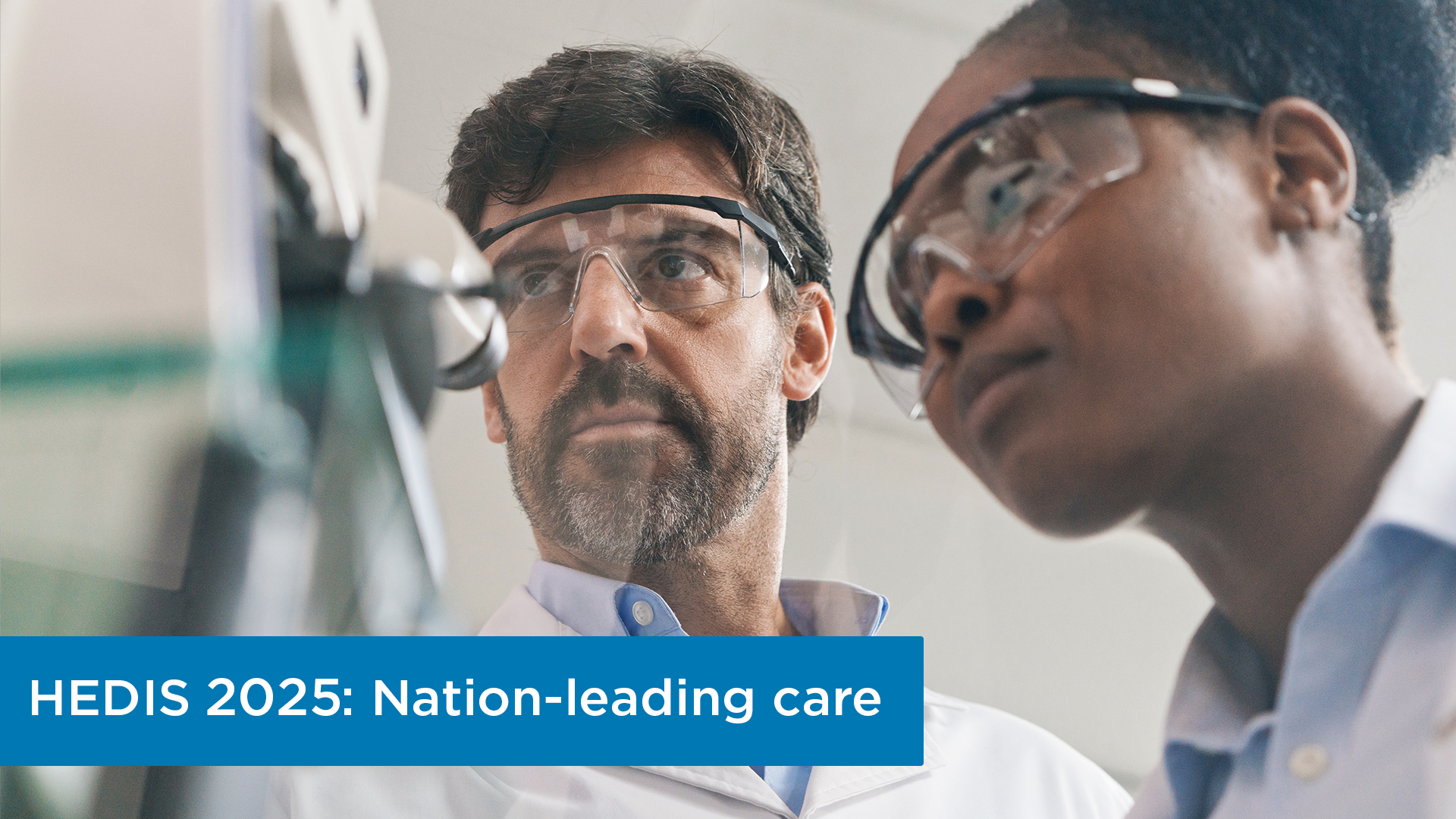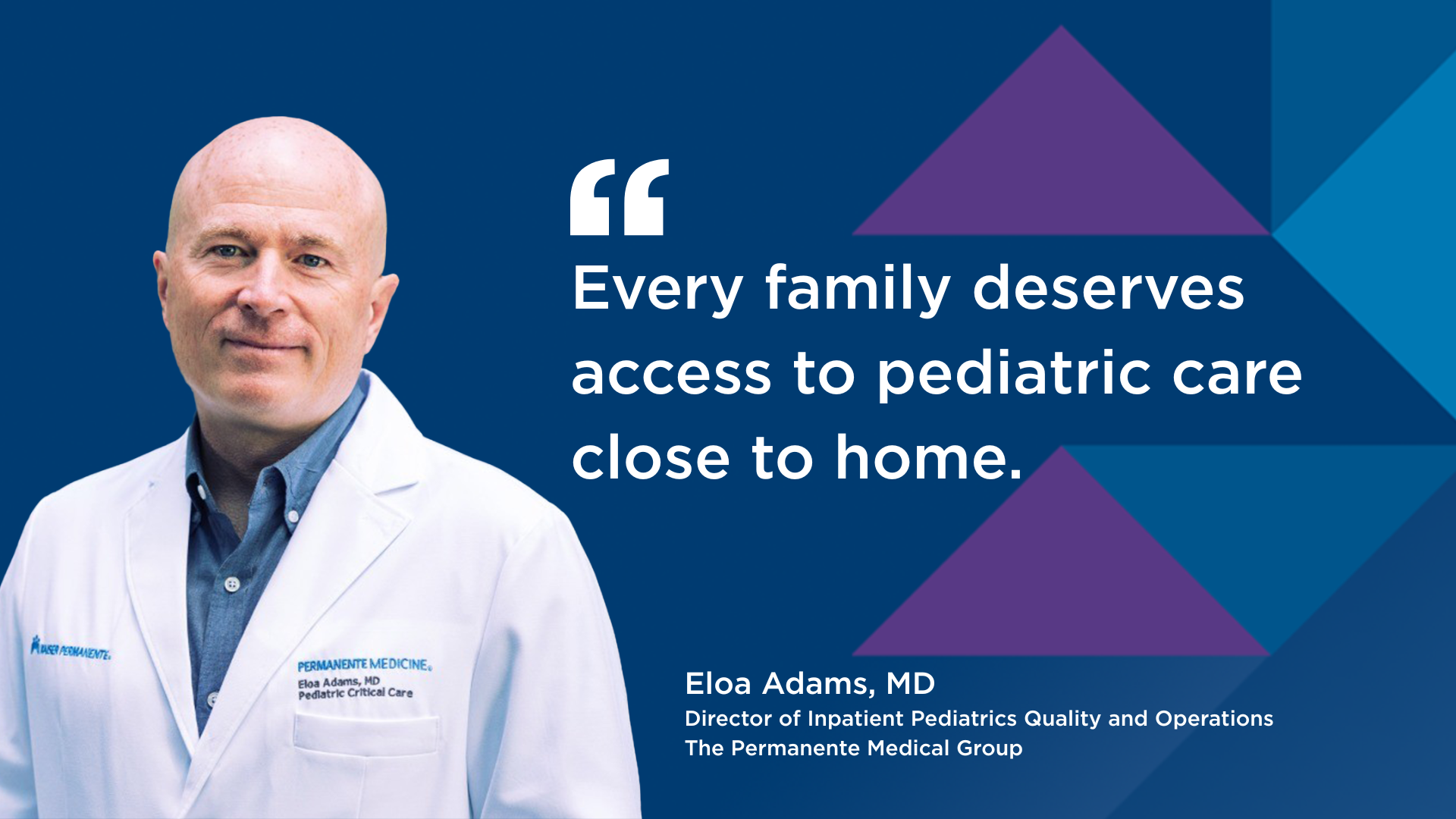Permanente Medical Groups led the U.S. in 2025 HEDIS rankings for preventive care, specialty care, chronic care, and behavioral health care.

3 ways Permanente physicians are leading in lung cancer care
Kaiser Permanente cancer patients benefit from pathways, genetic sequencing, and cutting-edge research
By Janet Byron
The Permanente Federation
Kaiser Permanente’s comprehensive and multidisciplinary Lung Cancer Care Program is integrating the continuum of lung cancer services — from prevention, diagnosis, and treatment, to survivorship, palliative care, and research.

“Ultimately, we would like all components of lung cancer care to be supported by the latest technology, to be seamless, and to support the most current, evidence-based care for all our members,” says Tatjana Kolevska, MD, oncologist and hematologist with The Permanente Medical Group and medical director of the Kaiser Permanente National Cancer Excellence Program.
November is Lung Cancer Awareness Month; according to the American Cancer Society, 1 in 4 cancer deaths in the United States is due to lung cancer, making it the leading cause of cancer mortality. More people die of lung cancer annually than of colon, breast, and prostate cancers combined. This year about 235,000 people will be diagnosed and 132,000 will die from the disease.
Here are 3 ways that Permanente physicians are leading the way in lung cancer care.
1. Pathways make it easy for physicians to guarantee the right lung cancer care
When a lung nodule is discovered or lung cancer is suspected, Permanente physicians have a clear pathway to follow for prevention, diagnosis, and treatment. The algorithmic pathway — embedded directly in Kaiser Permanente’s comprehensive electronic health record and based on the cancer’s stage and tumor type — guides physicians from screening and ordering genetic tests to identifying the right clinical trial, chemotherapy, immunotherapy, or other targeted treatments.

“Pathways have become a necessity in oncology — there are so many treatments and paradigms that it’s hard to keep up. Our lung cancer pathway makes it very, very easy for clinicians to follow what the recommendations are,” says Jennifer Marie Suga, MD, a thoracic medical oncologist with The Permanente Medical Group and chair of the Kaiser Permanente National Lung Cancer Program. “The lung cancer pathways are a way for us to standardize what are the most appropriate treatments. It really has been beneficial to our oncologists.”
The lung cancer care pathway is updated quarterly by a panel of lung cancer specialists from across the health care organization. They review the pathway quarterly and can quickly update it when, for example, the Food and Drug Administration approves a new treatment or National Cancer Institute announces a new clinical trial.
Over the past 2 years, Kaiser Permanente has developed 94 such pathways for the most common as well as many rare cancers; the lung cancer pathway was the first. Up to 30 more pathways will be added to Kaiser Permanente’s electronic health record in the coming months.
For cancer patients, the benefits of the lung cancer pathway and all the others are consistency and equity. “Our patients can have confidence that any oncologist that they go to will have the right treatment options, which have been recommended by a panel of experts,” Dr. Suga says.
Related article: Cancer care reimagined: clinical pathways and digital transformation
2. Genetic sequencing provides personalized treatment
Genetic testing has led to a sea change in how physicians detect and treat cancer. The FDA has approved more than 165 new genomic tests for cancer over the past decade, resulting in a paradigm shift in therapies for all cancers, including lung cancer.

“We’re in the world of precision medicine today,” says Dinesh Kotak, MD, a medical oncologist with The Permanente Medical Group and co-chair of its Precision Medicine and Genomics Technology Initiative. “We now test the genome of the cancer, and based on certain mutations we use them to decide what kind of treatment would be best.”
Kaiser Permanente has developed an algorithmic decision-support tool for next-generation sequencing of lung cancer tumors that operates behind the scenes in the electronic health record, making it easy for Permanente physicians to quickly determine which tests are needed and place orders.
“Instead of taking 25 minutes to order genetic tests, it now takes less than 5 seconds,” Dr. Kotak says.
With information about the molecular composition of a lung cancer patient’s specific tumor, Permanente oncologists can identify which tumors are “medically actionable” and choose therapies that the patient’s cancer is more likely to respond to.
An analysis of Kaiser Permanente cancer patients who received next-generation sequencing — which Dr. Suga presented to the American Society of Clinical Oncology in 2020 — found that 50% of patients had tumors with actionable mutations, 22% were potentially eligible for clinical trials, and 11% were eligible for FDA-approved drugs or other promising treatments.
Nationally, about a third of lung cancer patients with metastatic disease are receiving next-generation sequencing, Dr. Kotak says. By standardizing the ordering of genetic tests, virtually every Kaiser Permanente lung cancer patient who can benefit from them is being referred, which means more equitable care.
“Because the process for ordering genomic tests has been cumbersome, it was not always ordered accurately and in the right context,” Dr. Kotak says. “This tool democratizes the testing, and makes it easy to do the right thing!”
Related article: 10 ways physician-led health organizations provide exceptional breast cancer care
3. Clinical trials and research ensure that lung cancer patients receive cutting-edge treatment
The only way to discover new, more effective, and less toxic treatments for cancer is through research and clinical trials, Dr. Kolevska says; but nationally less than 10% of cancer patients participate in clinical trials.
All Kaiser Permanente lung cancer patients have access to clinical trials, experimental chemotherapies, and immunotherapies that are at the cutting-edge of cancer treatment, as recommended for their specific tumors.
“It is essential that cancer patients know about their option and opportunity to choose treatment on a clinical trial, which has a potential to offer better outcome and advance cancer science,” Dr. Kolevska says. “Clinical trials are always the number one choice in our cancer pathways.”
Dr. Suga is the principal investigator for the Kaiser Permanente National Cancer Institute Community Oncology Research Program (NCORP), a national network that brings cancer clinical trials to people in their own communities. At Kaiser Permanente, clinical trials are available to members at 67 hospitals across the nation.
“You don’t have to travel to an academic center to have access to the best care and clinical trials,” Dr. Suga says.
Dr. Suga is also coordinating a cross-regional program of lung cancer research.
“We are developing a comprehensive approach with all the different regions,” she says. “By focusing as a group on research priorities, we can make a huge impact on lung cancer care.”


